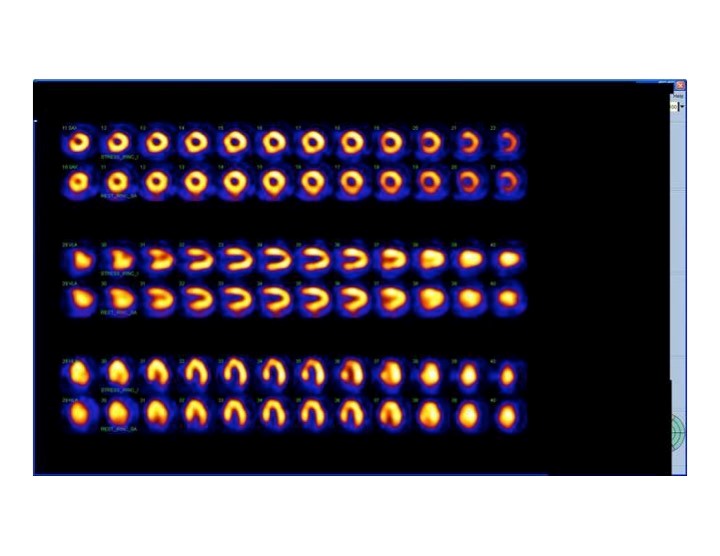Myocardial perfusion is an imaging test. It’s also called a nuclear stress test. It is done to show how well blood flows through the heart muscle when it is put under stress as exercise. This test determines the likelihood of a blockage in the coronary arteries. Blood flow in the heart is assessed by injecting a small amount of a radioactive chemical through an intravenous line. The chemical injected has a high affinity to heart muscle cells and will selectively attach to them briefly, thus “labelling” the heart.

This chemical will travel through the circulation and eventually reach the heart muscle through the coronary arteries. If our heart arteries are patent and able to maintain healthy supply of blood flow to the heart muscle, this radioactive chemical will be distributed evenly to the entire heart. Under 4the gamma camera, the entire heart will glow like a full moon.
Myocardial perfusion is often used to identify and diagnose several heart conditions, including:
- Coronary artery disease
- Arrythmia
- Other heart-related disorders
- Damage from heart attacks
This test is frequently used to investigate patient presenting with chest pain, breathless and those who require pre-operation assessment for fitness for surgery.
- Is this test safe as it involves radiation?
- This is a very safe test as the amount of radiation involved is very low. The risk versus benefits of any medical radiation should be discussed with your heart specialist. This test is not recommended if you are likely to be pregnant.
- How long is the test
- The nuclear scan is performed twice, one for the rest phase and again for the stress phase. Both scans are usually completed in the same day but occasionally due to scheduling factors the test may be completed over 2 days.






